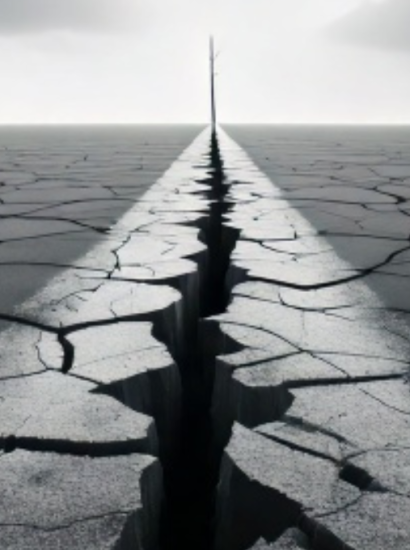This post is also available in: ΕΛΛΗΝΙΚΑ (GREEK) TÜRKÇE (TURKISH)
Container State
In social terms, the right to education is so important that it is protected by the Constitution. The state is obliged to provide education for all, including measures for individuals with special education needs. No one, citizen or non-citizen, may be deprived of the right to education.
This right is also regulated in more detail within the framework of the National Education Law. I have various criticisms regarding that, but I will skip it for now, because when it comes to education, unfortunately we have a serious mentality problem beyond the legislation.
After the earthquake of 6th February, the trauma that has become widespread within society in general, and which has recently been remembered with moderate earth shocks in nearby regions has not yet healed. What accompanies the legal struggle over the loss of lives is also the fear of destruction. We have particularly become sensitive about school buildings where children receive education, and there were concrete reasons for this. School buildings are falling apart during, or outside school hours. Why? Because the buildings are not safe. However, this information is nothing new. Since 2021, two years before the earthquake in 2023, teachers’ unions have been crying out loud. In fact, they do not only cry out loud, but also prepare reports on schools and publicly share them. In a way, the unions are doing what the state should do.
In short, the issue is current but not new. What did the brilliant ‘government’ do when resources should have been created and the buildings should have been strengthened over such a long time period? It found a solution that was resorted to in times of war and poverty: Containerised classrooms! Let’s not go back to 2021. The issue has been on the agenda of this society since March 2023. In other words, a period of one and a half years has passed. Why hasn’t even a single nail been driven?
Another problem is the chaos in the recruitment of teachers. In the past, teachers were requested from abroad because there were no graduates from the required departments here, and continuing so today does nothing but lay obstacles in the future of Turkish Cypriot youth. Yet, it is obvious that some orders cannot be disobeyed and those who try to take root in the country can be easily tossed out.
While states that attach importance to human dignity and life are discussing the content of education and its enhancement with technological developments, we are discussing building security, children’s access to education in unhealthy physical conditions like rain, mud and extreme heat, crowded classrooms, and the situation of children who do not speak Turkish in schools where the language of instruction is Turkish. What kind of an incapacity is this!
***
Unprotected Children
The country is turning into an unlivable place with each passing day. Under the given conditions, children are one of the groups that are exposed to rights violations most severely. Due to their young age, they need more intensive protection. Unfortunately, the state is unable to fulfill this duty properly.
The issue of education, which I tried to mention in the previous section, is actually an important tool in the protection and empowerment of children. If a child who has been subjected to any form of neglect, or abuse, is aware of his/her rights and feels empowered to voice them, a significant part of the preventive steps can be taken. It is not possible to find any subjects on human rights and civic education in the curriculum of public schools.
In 2011, the TRNC Assembly adopted the Council of Europe (CoE) Convention on the Protection of Children against Sexual Exploitation and Sexual Abuse into legislation by passing a ratification act. Then, especially in 2014, an improvement was made in the Penal Code about penalties regarding child abuse within the framework of this convention, but it did not go beyond this.
We know that the most important way of preventing such actions is not to punish them. Yes, punishment is an important result in terms of ensuring justice when a crime is committed, but it does not have enough effect to prevent the crime from being committed again. The main task is to establish a system that can evaluate the existing risks well and implement preventive policies.
The most important point emphasized by the aforementioned convention is to establish institutional mechanisms for risk assessment. Social Services should be strengthened and specialised working groups should be created to work with each social group (children, disabled, immigrants, poor, elderly, ex-convicts, addicts etc.) separately. It is not possible to do this with the old methods. I did not count women and LGBTI+ people because there is a state department (TOCED) [Gender Equality Department] to deal with them. Although it is not fully operational, at least the mechanism is there.
In some cases, close monitoring is very important. If an issue of domestic violence comes to the knowledge of the state in any way (hospital, police or social services), the follow-up process should start immediately, and the state should stay present in that area until the violation of rights is eliminated. Remember Arda, who passed away in August. When you dig into his past, you find out that he had experienced severe domestic violence. Even if a child may not be physically exposed to violence (which is the opposite in this case), s/he can still be a victim and witness of violence against other individuals in the home, such as the mother. At this point, empowerment of every individual needs to be a goal of the state, and it should not ‘leave’ any house until this mission is accomplished.
Another example is the incident that took place in Trikomo, and came on the news agenda with the rape of a mentally disabled girl. We learnt from the details given to the court that this incident had been going on for a long while. Of course, I am not going to put all the burden of responsibility on the state. Yet, I would like to say that the protection of individuals with disabilities is an issue that needs to be taken seriously, just like the children. The risk assessment I mentioned should be made separately for each disabled individual. For this, the state should collect data. What is the total number of disabled individuals living in this country, and what are their needs? Are they regularly monitored by state officials? Is there a structure that is set to meet the psychological and other needs of disabled individuals of all age groups?
I hope that there is an answer to all these questions, and that I am raising concerns and criticisms unnecessarily.






